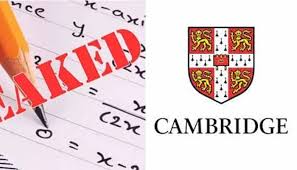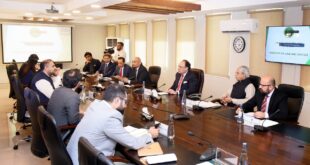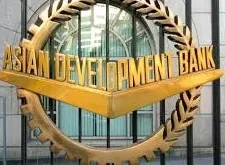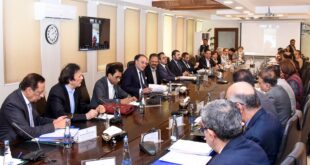
Aftab Maken
ISLAMABAD: The National Assembly’s Standing Committee on Education has initiated a formal inquiry into serious allegations of leaked Cambridge International examination papers, establishing a subcommittee to conduct a thorough investigation. The move came after a tense committee meeting on Friday where evidence of multiple compromised exam papers was presented.
MNA Muhammad Ali Sarfraz from Faisalabad brought the issue to the forefront, providing evidence of four allegedly leaked Cambridge exam papers, accompanied by video footage to substantiate his claims. Sarfraz argued that while a few students might have unfairly benefited from the leaks, the vast majority were placed at a significant disadvantage. He elaborated that in such instances, Cambridge typically resorts to average marking or assigns grades based on students’ previous school performance, methods many fear may not ensure fairness.
During the meeting, chaired by Dr. Azeemuddin Zahid, committee members voiced strong concerns and proposed potential remedies. Suggestions included re-administering the compromised exams in July or compelling Cambridge to lower the grading thresholds to mitigate the impact on affected students.
Cambridge’s Pakistan Country Director, Uzma Yousuf, faced pointed questions from the committee members, including Zeib Jafar and Dr. Haleem, who criticized the examination body’s handling of the situation. In response, Ms. Yousuf denied the occurrence of any leaks, terming the accusations as “mere rumors.” She assured the committee that Cambridge, which conducts examinations in 160 countries, is investigating the matter and expects to conclude its inquiry by June 16.
The Federal Secretary for Education, Nadeem Mehmood, clarified that Cambridge and other foreign educational boards operate in Pakistan through the Inter Board Committee of Chairmen (IBCC) and are accountable to it. However, IBCC Executive Director Dr. Ghulam Ali Mallah highlighted a disconnect, stating that Cambridge frequently fails to consult the IBCC on crucial matters.
Dr. Mallah further suggested that the issue of paper leaks emerged after schools were granted permission to conduct exams independently, rather than exclusively through the British Council. He specifically mentioned that under former Secretary Mohyuddin Wani, the IBCC was bypassed, and Beaconhouse was permitted to manage its own exam administration. Despite an expectation that this decentralization would lead to reduced fees, Dr. Mallah noted that Cambridge’s charges remained unchanged, prompting criticism from committee members about the significant revenue Cambridge earns from Pakistani students without ensuring complete transparency.
Ms. Yousuf also drew fire for reportedly criticizing local public education boards, claiming their alleged poor performance was a factor driving students towards Cambridge. This assertion was challenged by the Chairman of the Higher Education Commission, who contended that several local boards, including the Federal Board, maintain high standards and perform commendably.
To delve deeper into the alleged leaks and scrutinize Cambridge’s overall performance and operational transparency in Pakistan, the standing committee has formed a dedicated subcommittee. MNA Sabeen will lead this investigative body, which includes members Zeib Jafar, Muhammad Ali Sarfraz, Dr. Aleem, and the IBCC Executive Director, among others. Uzma Yousuf will also be summoned to appear before the subcommittee, which is scheduled to convene after June 16, pending the outcome of Cambridge’s internal investigation.
 BeNewz
BeNewz




